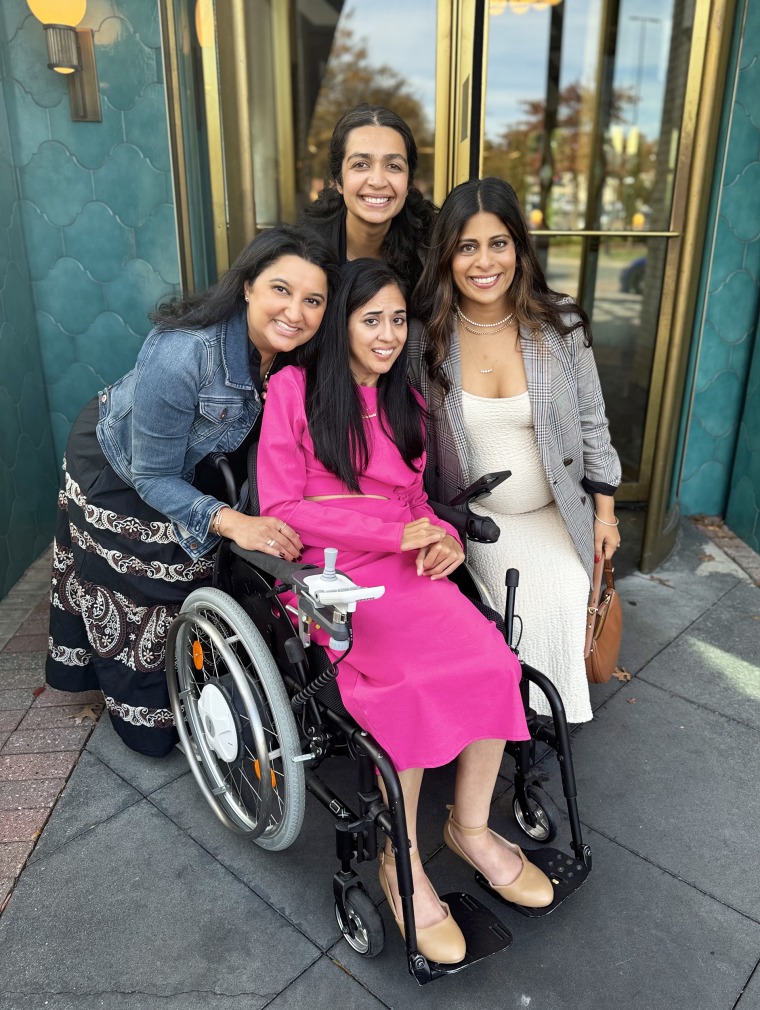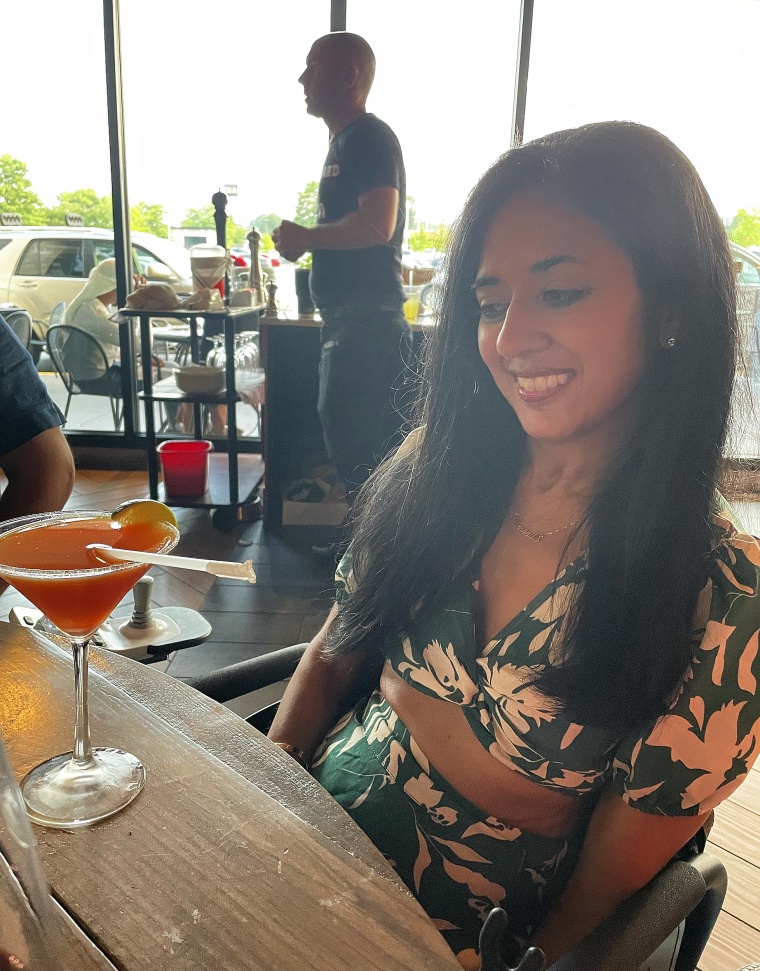Last Christmas, my friend gave me an electric, Barbie-pink dress with a sexy side cutout at the midsection from Zara. It was stunning and super chic. But I thought to myself, there’s no way I could wear that — I didn’t have a flat stomach, especially in a seated position. It would look so inappropriate on the “adorable” wheelchair girl who was desperate for grays and blacks so she could blend into the background. But I tried it on just for fun and looked in my full-size mirror. And there I saw it: a tiny, well-defined ab muscle peeking out of the cutout in my dress, while still sitting in my wheelchair.
It wasn’t an easy beauty like a sparkling diamond ring or a burning sunset at dusk. It was less obvious, a “difficult beauty,” as disabled author Chloé Cooper Jones describes it in her memoir, “Easy Beauty” — it’s a beauty that takes time and patience to appreciate.
Ever since my stroke at 23, I hadn’t exactly enjoyed seeing the imposter with a crooked smile staring back at me in the mirror, so I’d avoided looking. Based on how people glared at, dismissed or just flat out ignored me, I didn’t think I was missing out on anything. So, I was shocked and a bit exhilarated at the sight because I looked … not bad. Certainly not like I used to — I could see the scars left by my stroke from head to toe: swollen ankles, asymmetrical features, fisted hands. But it wasn’t all bad. Never once in my life had I had anything resembling abs and my smile didn’t even seem that crooked anymore. It had a bit of spark hidden inside it too. It wasn’t an easy beauty like a sparkling diamond ring or a burning sunset at dusk. It was less obvious, a “difficult beauty,” as disabled author Chloé Cooper Jones describes it in her memoir, “Easy Beauty” — it’s a beauty that takes time and patience to appreciate. A beauty that dismantles your conventional beliefs about what or who can or can’t be beautiful. Why had society always made me feel small, sad and straggly? Like my body should be invisible or hidden, instead of living out loud?

Infantilization is when people use condescending or patronizing language to speak to adults, as though they’re children, and this is something people with disabilities often experience. As Psychology Today explains it, “This behavior [infantilization] is offensive because it underestimates a person’s cognitive abilities and implies that people with disabilities are invisible, don’t matter, or don’t have anything meaningful to communicate.” The article goes on to say that the cumulative effects of this treatment can lead to withdrawal from society or a loss of identity.
That day, as I gazed in the mirror at my new party dress, I didn’t see a girl in a wheelchair. I saw a woman. A 37-year-old woman. Since my stroke 15 years ago, I had stopped seeing myself as a woman because society deemed I wasn’t one anymore. There was the constant baby talk and patronizing tone from strangers. Or more subtly, how people always described me as “adorable” or “cute.” Or even more overtly, like when my doctor started undressing me with my dad still in the room, assuming I didn’t need privacy. Or when a family friend asked my brother standing next to me, “How do I talk to her?” Or the countless people who spoke to whoever was with me instead of me. I felt thoroughly infantilized and desexualized by everyone around me, even if they had the best of intentions.
There was the constant baby talk and patronizing tone from strangers. Or more subtly, how people always described me as “adorable” or “cute.” Or even more overtly, like when my doctor started undressing me with my dad still in the room, assuming I didn’t need privacy.
After my epiphany, I converted my wardrobe from one of old, boxy T-shirts and frayed sweatpants to one of eye-catching crop tops and bodycon dresses. I even posted a photo on Instagram of me in a bikini — I had never worn a bikini in my life before that point. My friends like to tease me that I’m in my “Hot Bua” era because of this newfound obsession. My niece calls me “bua,” which means aunt in Hindi, or more specifically, “dad’s sister.” Though dressing attractively and keeping up with the ever-changing fashion trends of Gen Z has always been something I cared about, deciding on this new, sexier aesthetic hits a bit deeper for me.

Writer Chaédria LaBouvier uses the term “weaponized glamour,” which she defines as “using beauty and style in direct, political ways that subvert dehumanizing expectations.” My fashion is now my passive protest against the universally accepted norm of infantilizing people with disabilities, especially women in wheelchairs. It’s my attempt to force people to see what I saw in the mirror that day — me in all of my difficult beauty glory. I want to force them to see me as a woman. To force society to accept me as one. Not as a cute, little, “special” girl who needs to be handled with kiddie gloves, but an assertive, empowered woman — the kind of person I’ve always been. I’m just sitting now instead of standing.